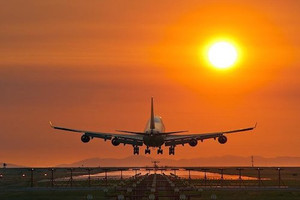
You’ve booked your flights, accommodation or possibly a cruise, and your travel insurance is organised, but what should you be doing about money? Gone are the days when you had to have currency or travellers cheques ordered well in advance. Today there are a number of bank cards and credit cards which are accepted overseas, but you do need to check on a few things before leaving home to avoid making costly mistakes. Before we get into the nitty gritty, however, remember you should always call your bank before going overseas, even if you are a frequent international traveller. These days banks have almost no lag time in noticing a debit or credit card being used abroad, so you risk your card being rejected from the very first swipe in a foreign country. This is even more so if you are making different purchases than normal, or charging large amounts to your card such as a hotel stay.
Before you travel, make sure your card is one which can be used overseas. Also worth doing is checking to see if your bank cards incur fees for foreign transactions; if they do, consider switching banks and getting a debit card or ATM card which doesn’t attract these fees. Plan on taking at least a few hundred dollars worth of local currency with you to get you started on your holiday, as well as some of your home currency in case of emergencies. We once arrived in Greece during a bank strike with banks closed, and ATMs not working, and had no local currency whatsoever! Speaking of ATMS, at your destination, each time you use an ATM to get cash you will likely incur a fee, and these can vary depending on whether the machine is run by a large bank, or if the bank is on your card’s network. As a general rule it makes more sense to draw out larger amounts less frequently, than lots of small ones. At the end of a trip to United States once we had to use an ATM which charged a whopping $4.50 to draw out $50 to pay for a taxi ride to the airport.
ATMs can also feature in common scams overseas. You need cash, and use an ATM to withdraw it, but later when checking your bank balance online you notice some mysterious transactions that you didn’t make. What’s happened is that your PIN has been skimmed and a scammer is using your card. When using ATMs aways cover your PIN when you enter it, as scammers sometimes use tiny hidden cameras to watch you as you enter your code. Also try to avoid using ATMs on your own, and when possible, withdraw cash from machines inside a bank. To get a handle on what things are costing you overseas, do some research on the local exchange rate against your home currency. This can also help if you prefer using cash instead of cards in terms of budgeting how much local currency you’ll need day-by-day. And if you need to move money around online, or check your bank balance, don’t use public internet or Wi-Fi networks unless you’re absolutely desperate, as there’s always a risk that your information can be captured by a third party.
- By:
- Ben Hall
Reviews
-
Good Advice
Some good tips here, and yes, do check the credit card fees.... we made a mistake on a cruise overseas a few years ago and it cost us quite a bit! We changed banks now :O






